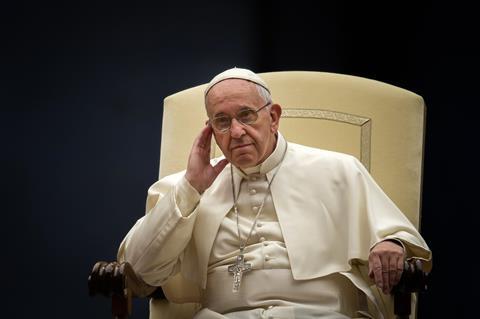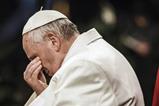If you read it closely, the Fiducia Supplicans does not move away from the Catholic Church’s historic teaching on sex outside of marriage. But in saying anything at all, the Vatican has introduced confusion, says Peter D. Williams. It is an act of gross imprudence

The last 48 hours have seen a furore within the Catholic Church after the publication of a document by the Dicastery for the Doctrine of the Faith (DDF), the body tasked by the Catholic Church with maintaining sound teaching. This document, Fiducia Supplicans, discusses “the pastoral meaning of blessings”.
The uproar has been largely caused by immediately misleading media headlines. One of these was the Vatican News service itself, which ran with: “Doctrinal declaration opens possibility of blessing couples in irregular situations”.
This is not strictly untrue but, without any further context, could give the impression that the Catholic Church is giving way to secular liberal culture by reversing its teaching on sexual ethics, affirming not only same-sex relationships but also unions between heterosexual couples outside of marriage.
Informally blessing people is very different from formally blessing sinful relationships
Understandably, most people will not have had time (especially in the days before Christmas) to read the 5,000 word document itself to find out what’s really going on. But if we are to properly appreciate the reality of the situation, what really matters is what the document actually says.
Interrogating the text
Fiducia Supplicans means “supplicating trust”: “the supplicating trust of the faithful People of God receives the gift of blessing that flows from the Heart of Christ through his Church”.
The subject of the document is the possibility of blessings by the Church on members of the faithful, which are normally carried out by priests.
The first thing to note is that Fiducia Supplicans repeats the Catholic Church’s consistent upholding of the teaching of Holy Scripture on sexual ethics for two millennia, by denying the possibility of any kind of liturgical blessings for any union outside of the marriage between a man and a woman.
While the document is not affirming, it opens the door to scandal, confusion and abuse
Why then, the controversy? This comes due to the document’s discussion of the “possibility of blessings for couples in irregular situations and for couples of the same sex…the invocation of a blessing that descends from God upon those who – recognising themselves to be destitute and in need of his help – do not claim a legitimation of their own status, but who beg that all that is true, good, and humanly valid in their lives and their relationships be enriched, healed, and elevated by the presence of the Holy Spirit.”
The document requires that such blessings “should not be fixed ritually by ecclesial authorities to avoid producing confusion with the blessing proper to the Sacrament of Marriage.”
Mixed messages
On the face of it, this sounds kind and well-intentioned. Informally blessing people is very different from formally blessing sinful relationships. The document’s condemnation of the latter but allowing for the former is therefore not formally contradictory.
The concern that some traditional and conservative Catholics (including myself) share however, is that, in reality, this is a clear distinction without a practical difference. When you bless a couple as a couple, you bless two people in a clear relational context. If your intention is to invoke God’s blessings on “all that is true, good, and humanly valid in their lives and their relationships” (emphasis mine), it still seems to allow for affirmation of their sinful partnership.
It seems clear to many Catholics that, while this document is clearly not affirming relationships that violate the teaching of Christ and his Church formally, it is opening the door to scandal, confusion and abuse by bad actors who wish to flout the Church’s teaching as has already apparently happened in New York.
That may not be the intention of the document, but the potential for such evils is so obvious that it constitutes an act of gross imprudence. The document gives doctrinal clarity with one hand, and yet takes it away pastorally by opening up the possibility of these blessings couched in the specific terms given.
The Dicastry would be well advised to mark the words of Our Lord: “Let your ‘Yes’ be ‘Yes’, and your ‘No’, ‘No’. For whatever is more than these is from the evil one” (Matthew 5:37).





































1 Reader's comment